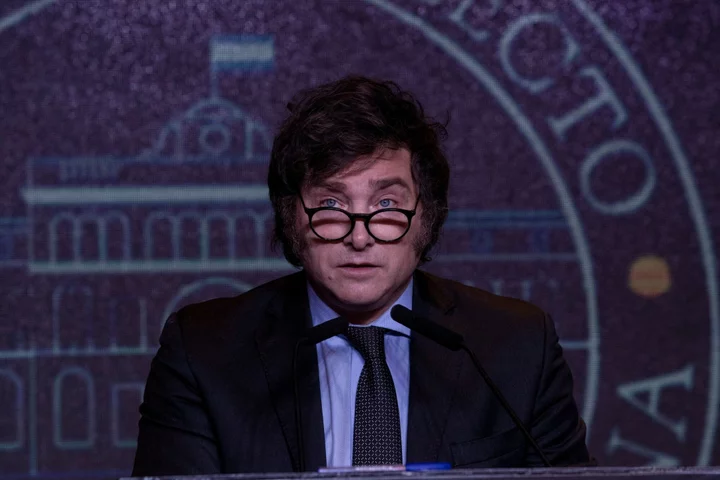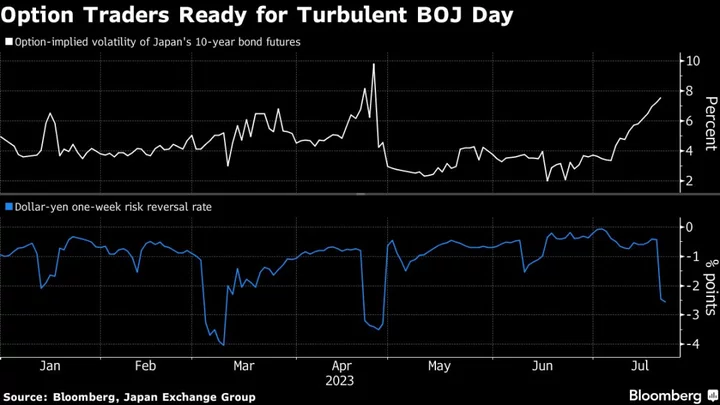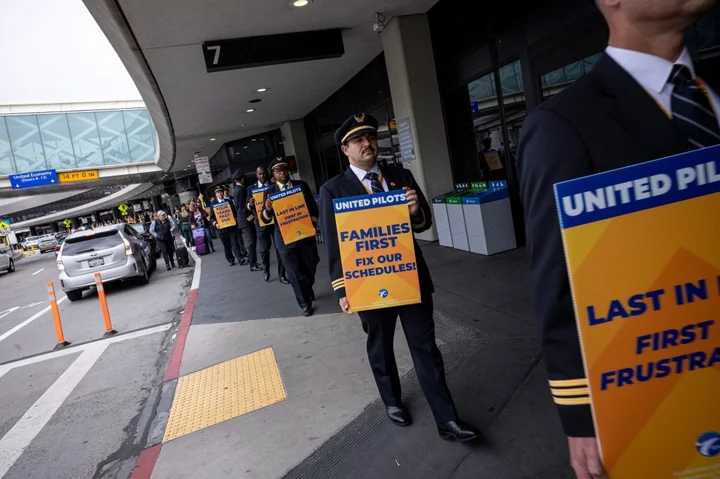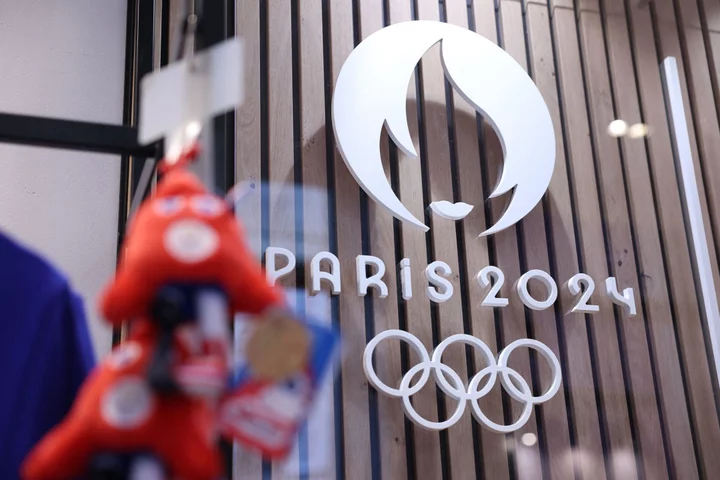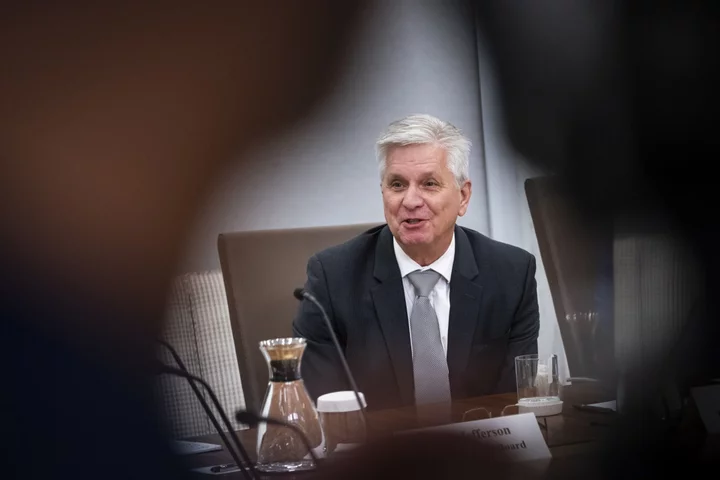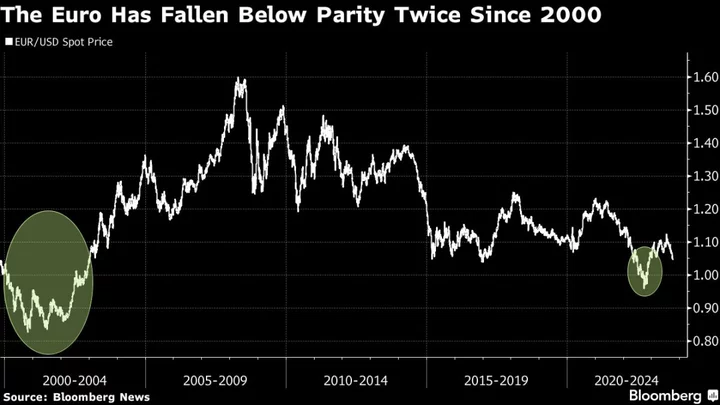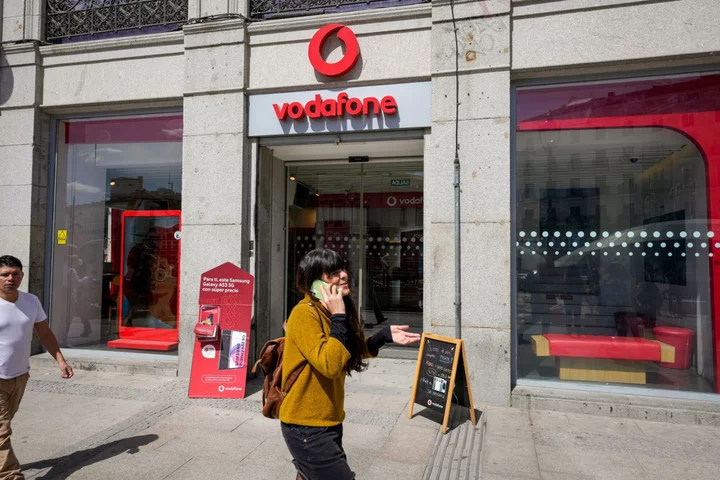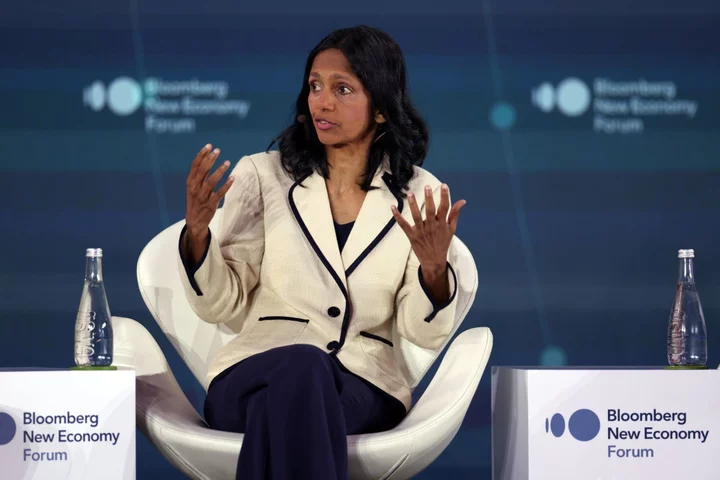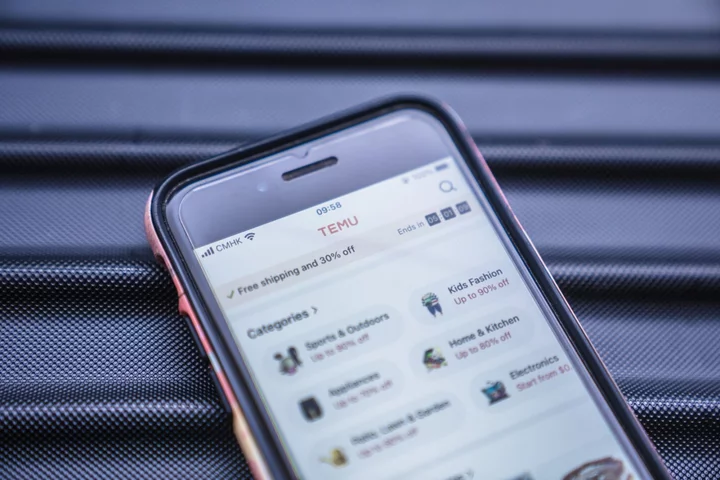Argentine President-elect Javier Milei lauded former central bank president Luis Caputo Wednesday, acknowledging he has the expertise to be the next government’s economy minister.
Milei stopped short of naming Caputo economic chief, but didn’t push back when asked if Caputo was participating in meetings between his transition team and the International Monetary Fund, which has a $43 billion agreement with Argentina that will likely need to be renegotiated.
Read More: Argentina Sputters Toward Recession as Milei Takes Reins
Caputo is “someone in conditions to be in that position, without question,” Milei said in a wideranging TV interview with a local channel, referring to economy minister. “He’s someone who has the necessary expertise to disarm the monetary problem that we have and find a financial market solution to end the central bank’s debt problem and currency controls.”
Caputo was also the finance secretary during the beginning of former President Mauricio Macri’s government, when he renegotiated a deal with the holdout bondholders for about $16.5 billion to return to the international markets. Caputo later issued a 100-year bond that the current government discarded after defaulting on creditors in 2020.
Read More: Milei Says Argentina Heading for ‘Shock’ Fiscal Therapy in 2024
Milei reiterated that he will not lift the currency controls until the central bank’s short-term debt load is resolved. The president-elect also distanced himself from the dollarization plan of Emilio Ocampo, who Milei had said multiple times before the election would be his pick for central bank chief. On Wednesday, Milei said Ocampo may need to implement a different plan than the one he originally proposed due to “market conditions.”
Other key comments from the interview:
- Milei confirmed he still plans to privatize some state-run companies, including water utility AySA, Trenes Argentinos and energy company YPF, among others
- Milei said bringing inflation down significantly could take 18 to 24 months
- Milei said he intends to work most days from the presidential residence in Olivos outside the city of Buenos Aires, and not the presidential palace, Casa Rosada

